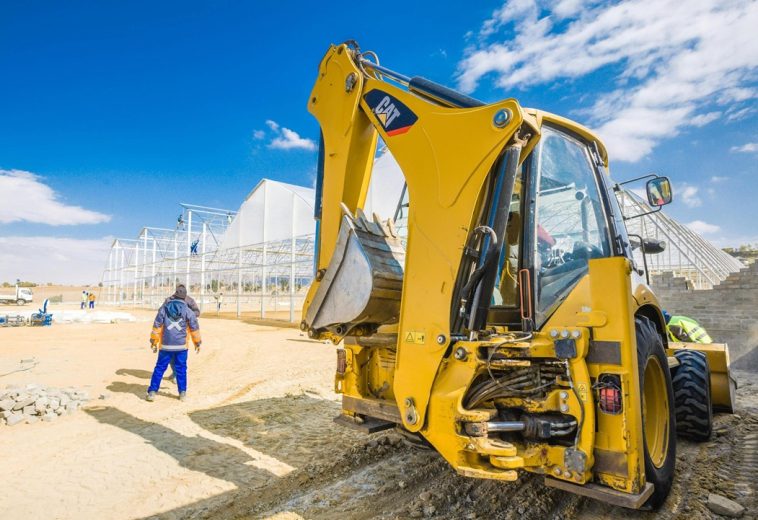The continent’s democratic evolution, shaped by historical legacies, socio-political upheavals, and the quest for self-determination, offers a nuanced picture of progress. From the tumultuous post-independence years marked by authoritarian regimes and military coups to the present moment of relative political stability and democratic gains, Africa has been redefining what democracy means in the context of its unique cultural and historical landscapes.
Independence and Early Struggles
When African nations began gaining independence from colonial powers in the mid-20th century, the optimism of self-rule was palpable. Yet, the inheritance of colonial borders, economic dependency, and a lack of institutional infrastructure posed significant hurdles. While independence was seen as a triumph, the path to democracy was often elusive. Colonial powers had built systems that favoured centralised governance with minimal regard for local culture or traditional leadership structures, leaving newly independent states struggling to establish inclusive and representative governments.
READ ALSO: Africa’s Democracy: Balancing Power and Influence
In the early post-colonial years, many African leaders, such as Kwame Nkrumah of Ghana and Julius Nyerere of Tanzania, promoted ideals of pan-African unity and development. However, their attempts to establish democracy faced immense challenges. As the initial euphoria of independence faded, many African nations turned to one-party states or military rule to maintain stability. Leaders like Nkrumah, initially hailed as champions of democracy, soon found themselves consolidating power in a bid to secure national unity, with some transitioning into authoritarian regimes.
This period, which lasted well into the 1970s and 1980s, was marked by military coups, authoritarian rule, and widespread political repression. The vision of democracy remained distant as military juntas took control in countries such as Nigeria, Uganda, and Sudan. Despite these challenges, the seeds of democratic aspiration were planted, as many citizens began demanding greater political freedoms and participation, setting the stage for future democratic movements.
The Struggle for Democratic Reforms
The 1990s were a turning point in Africa’s political evolution. The winds of change sweeping across the globe, marked by the end of the Cold War and the collapse of apartheid in South Africa, gave rise to a wave of democratic reforms across the continent. Popular movements, bolstered by civil society organisations, called for greater political freedoms, the introduction of multi-party systems, and the end of authoritarian rule.
One of the most significant milestones during this period was the end of apartheid in South Africa in 1994. Nelson Mandela’s election as the first democratically elected Black president marked the triumph of democracy in the face of decades of systemic racial oppression. This event symbolised the larger African struggle for freedom and democratic governance, showcasing the continent’s capacity to overcome entrenched authoritarianism and pave the way for inclusive democratic governance.
In parallel, many African countries began adopting new constitutions enshrining democratic principles such as the separation of powers, freedom of speech, and political pluralism. The 1990s also witnessed the re-emergence of multi-party systems in countries such as Ghana, Zambia, and Kenya, where long-standing one-party regimes were overthrown in peaceful transitions. Ghana’s transition in 1992 from military rule to a multi-party democracy is often hailed as a model for other African nations.
Africa’s Democratic Renaissance
The early 21st century has seen a marked shift towards greater democracy across Africa. While challenges remain, particularly regarding political violence, corruption, and authoritarian backslides, substantial progress has been made in consolidating democratic practices. A new generation of leaders has emerged, many of whom were shaped by the struggles for independence and the global rise of democracy.
Rising Democratic Institutions
Since the early 2000s, democratic institutions in Africa have grown stronger, with elections increasingly seen as legitimate and peaceful. Africa now boasts some of the most transparent electoral processes on the continent, with countries like Mauritius, Botswana, and Ghana regularly cited as examples of successful democratic transitions. These nations have developed strong electoral commissions, independent judiciaries, and vibrant civil societies, all of which contribute to robust democratic systems.
The African Union (AU) has also played a crucial role in strengthening democratic governance. Established in 2002, the AU has promoted democracy, human rights, and good governance across the continent. The African Peer Review Mechanism (APRM), a voluntary self-monitoring initiative, has been instrumental in encouraging member states to adopt democratic reforms and address governance challenges. Through this initiative, African nations hold one another accountable for their political practices, further strengthening democratic ideals.
One of the most notable developments in African democracy today is the rise of peaceful transitions of power through elections. Countries like Zambia, Liberia, and Tanzania have experienced smooth transfers of power from one democratically elected government to another. The increasing regularity of such transitions is a sign that democratic consolidation is steadily taking root.
The Road Ahead
While Africa has made significant strides in its journey towards democracy, the road ahead remains fraught with challenges. Political instability, military coups, and entrenched authoritarian leaders continue to impede progress in some regions. Countries such as Eritrea and Sudan still grapple with harsh regimes, where civil liberties are restricted, and democratic processes are undermined.
Corruption remains a significant obstacle to democratic governance in many African countries. Despite progress in some regions, transparency and accountability remain elusive in others. For example, the Democratic Republic of the Congo and Zimbabwe have struggled with political corruption and the erosion of democratic norms.
Furthermore, the youth bulge in many African countries presents both opportunities and challenges. With more than 60% of Africa’s population under the age of 25, young people are emerging as a powerful force for change, demanding jobs, education, and political participation. However, frustration with the lack of economic opportunities and political representation could lead to instability if not adequately addressed.
The Present and the Future
Despite ongoing challenges, Africa today stands as a beacon of hope for democracy in the developing world. The continent is experiencing what can be described as a “democratic renaissance,” with progress evident in various sectors, from gender equality in politics to the growing role of civil society in holding governments accountable.
Countries like Senegal and Ghana have earned global recognition for their democratic achievements, offering lessons on managing peaceful transitions, fostering citizen participation, and developing transparent electoral systems. The rise of digital democracy, facilitated by mobile phone technology and the internet, has also enhanced political engagement and voter participation, particularly among young people.
At the same time, democracy is increasingly seen as the preferred model of governance across Africa. Citizens are becoming more vocal, holding leaders accountable, and demanding greater political representation. The role of international bodies like the United Nations and the African Union in supporting democracy and human rights has been instrumental, with both organisations providing platforms for dialogue, negotiation, and peacekeeping.
The evolution of democracy in Africa is not a linear process but rather a journey marked by setbacks, achievements, and continuous adaptation. From the shadows of colonialism to the hopeful light of democratic reforms, Africa has made significant strides in reshaping its political landscape. While challenges remain, the progress seen in recent years suggests that the dream of democratic governance—characterised by peace, stability, and participation—is becoming increasingly attainable.
As the continent continues to evolve politically, the energy of the African people, the growing role of civil society, and the support of international institutions will be key to ensuring that democracy is not just an aspiration but a reality. The road ahead may still be long, but Africa’s commitment to democratic governance is undeniable, making its journey one of the most inspiring stories of our time.




